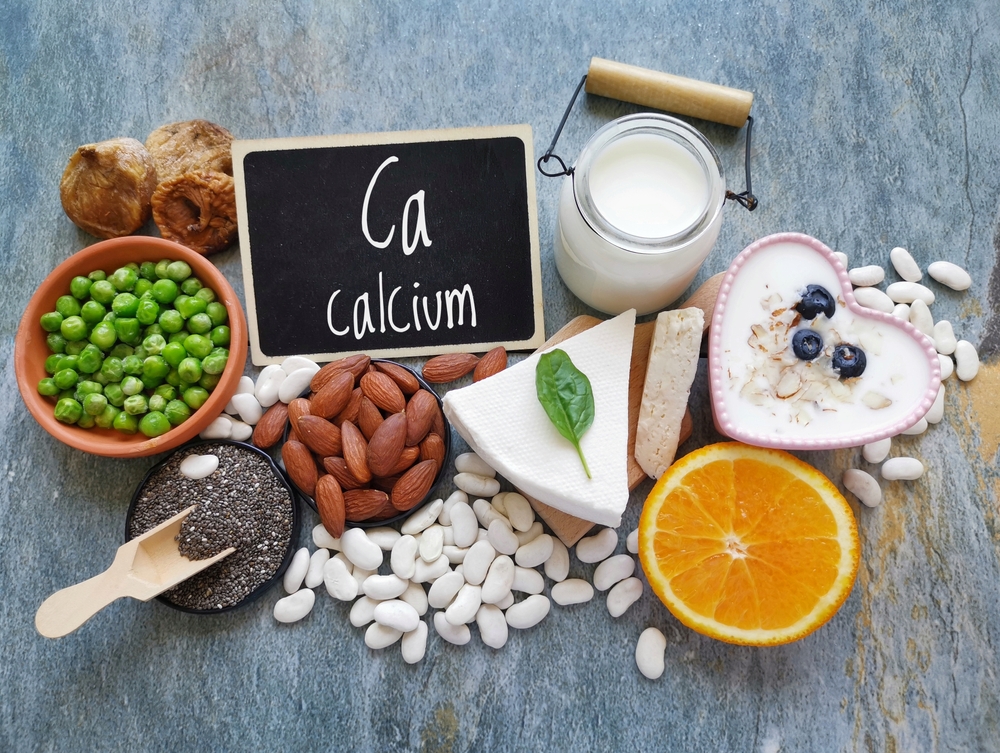Calcium is a vital mineral essential for overall health. It is predominantly found in our bones and teeth, which store about 99% of the body’s calcium. This mineral plays a crucial role in maintaining bone strength. It also supports various bodily functions, including muscle contractions, heartbeats, and blood clotting.
For men aged 51 to 70, the recommended daily calcium intake is 1,000 mg. Women in the same age group, as well as seniors aged 71 and older, should aim for 1,200 mg per day. Calcium levels tend to decrease with age due to factors such as reduced appetite and increased calcium loss through urine. As kidney function declines, the body becomes less efficient at retaining calcium, making higher intake necessary for seniors.
Calcium-rich foods include cheese, milk, yogurt, dark leafy greens, and tofu. For example, a slice of cheese provides 201.9 mg of calcium, a cup of milk offers 305 mg, a container of yogurt contains 187 mg, 100 grams of collard greens delivers 232 mg, and half a cup of tofu has 434 mg.
It’s generally preferable to obtain calcium from food rather than supplements. Adequate dietary calcium has been shown to reduce the risk of fractures, osteoporosis, and diabetes among seniors.
Lactose intolerance can make it challenging to get enough calcium. Hard cheeses like Parmigiano Reggiano and most cheddars are suitable options. This is because their lactose converts to lactic acid as they age. Plant-based milks, such as soy and almond, are lactose-free alternatives that also provide a good source of calcium.
The Boom Health app allows users to book registered nurses, personal support workers, and personal care services, schedule transportation, order prepared meals, rent or purchase medical equipment, and get emergency assistance. Download the app from the App Store or Google Play Store.
This article is not intended to be a substitute for professional medical advice or diagnosis. Always seek the advice of your physician or another qualified health provider with any questions you may have regarding a medical condition.





